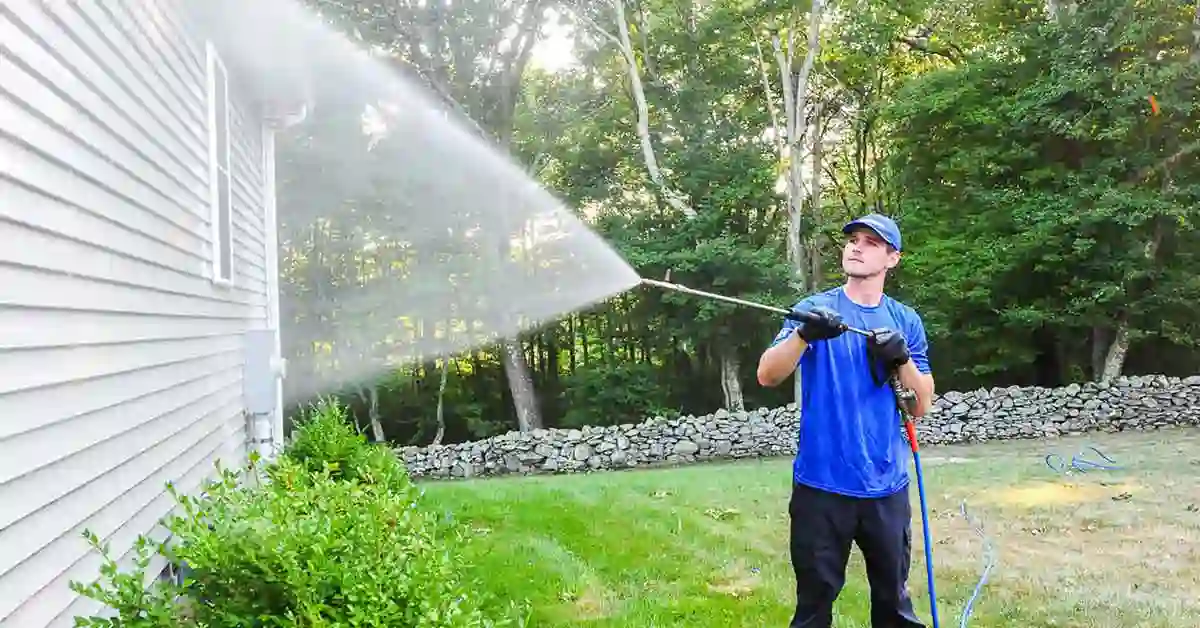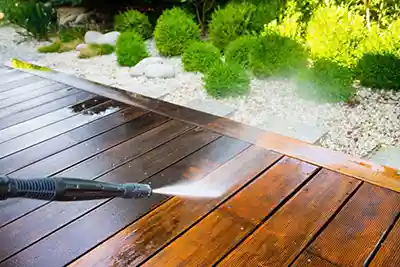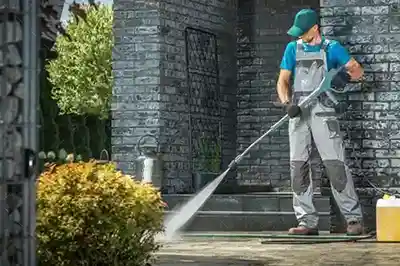
Do you ever feel like you're playing a guessing game when pricing your pressure washing jobs? You're not alone. This is a common challenge in the industry, especially for newcomers. Understanding the pricing for this service can be complex.
There are many factors that influence the cost of pressure washing. These include the size of the area, the type of surface, and the level of dirt and grime.
In this guide, we will delve into these factors. We aim to provide a comprehensive understanding of how to price pressure washing jobs.
Let's dive in and demystify the world of pressure washing pricing.
Importance of Accurate Pressure Washing Pricing
Accurate pricing can make the difference between running a profitable business and struggling to make ends meet. By underpricing, you risk not covering your costs, while overpricing might drive potential customers away.
Pricing pressure washing jobs is not a one-size-fits-all process. Each job is unique and requires a different set of considerations.
One of the primary factors affecting the price is the size and scope of the job. This is often referred to as "pressure washing per square foot".
However, the type of surface and the level of dirt and grime also play a significant role. Additionally, the cost of equipment, labor, and cleaning solutions must be taken into account.
Let's delve deeper into these factors.
Size and Scope of the Job
The size of the area to be cleaned is a major factor in pricing. Larger areas require more time, labor, and cleaning solution, thus increasing the cost.
- The size of the area
- The number of surfaces to be cleaned
- The complexity of the job
These are all elements that can influence the price. For example, a large commercial property will likely cost more to clean than a small residential driveway.
Surface Type and Material
The type of surface being cleaned also affects the price. Different surfaces require different cleaning methods and solutions.
For instance, cleaning a delicate wooden deck may require a softer wash and special cleaning solutions. This can increase the cost compared to cleaning a sturdy concrete driveway.

Equipment and Cleaning Solutions
The cost of the equipment and cleaning solutions used also impacts the price. High-quality, professional-grade pressure washers and eco-friendly cleaning solutions may cost more upfront.
However, they can provide better results and be more cost-effective in the long run. Therefore, service providers need to factor these costs into their pricing.
Market Research
What are your competitors charging? Understanding your market will help you to price your services competitively. But remember, cheaper isn't always better. You're offering quality, not a bargain bin service.
Evaluating Overhead Costs
Overhead costs are operating expenses needed to run your business. Here are some typical overhead costs associated with a business:
- Pressure Washing equipment
- Vehicle
- Fuel and maintenance
- Business licenses and insurance
- Cost of marketing your pressure washing business
- Office space and supplies
- Utilities
- Employee wages
- Software for power washing business
Calculate your hourly overhead costs
- Annual Operating Costs: Using the list above as a guide, add up all of your pressure washing cost over one year (12 months)
- Annual Working Hours: Determine how many working hours your business will operate during the year. For example, if you plan to work 40 hours per week, then 40 hours x 52 weeks in a year = 2,080 hours
- Hourly Overhead Costs: Divide annual operating costs by annual working hours:
Hourly Overhead Costs = Annual Operating Costs / Annual Working Hours
Pricing Strategies for Pressure Washing
When it comes to pricing pressure washing jobs, there are several strategies to consider.
The most common method is per square foot pricing. This involves calculating the total area to be cleaned and applying a set rate per square foot.
However, some providers prefer to charge based on the time it takes to complete the job.
Others may opt for project-based pricing, where the total cost is determined by the scope and complexity of the job.
There are three main structures you can use to price your power washing jobs:
Per Square Foot Pricing
Per square foot pricing is a straightforward method.
It involves measuring the total area to be cleaned and applying a set rate per square foot. This method is commonly used because it's easy to calculate and understand.
However, it's important to remember that the rate per square foot can vary based on several factors:
- The type of surface being cleaned
- The level of dirt and grime
- The location and accessibility of the job
The cost you can levy ranges from $0.10 to $0.50 per square foot, contingent upon the complexity of the task and the property's location.
Hourly Rates and Time Estimates
Another pricing strategy is to charge based on the time it takes to complete the job.
This is often referred to as "pressure washing rates per hour". This method requires a good understanding of how long it takes to clean different types of surfaces and areas.
Factors to consider when using this method include:
- The efficiency of the equipment
- The skill and experience of the technician
- The complexity of the job
Depending on your location, the scope of the task, and the necessary equipment, set your rates between $25 and $100 per hour.
Project-Based Pricing
Project-based pricing is another option. This involves assessing the scope and complexity of the job and providing a total cost estimate.
This method can be beneficial for large or complex jobs where the time and resources required may not be accurately reflected in per square foot or hourly rates.
Typically, pressure washers set a flat fee ranging from $90 to $200, the exact amount being contingent upon the nature of the job.
Choosing the right pressure washing pricing structure depends on your specific business model, your market, and the kind of job you're doing.

How to Calculate Your Power Washing Pricing
When pricing pressure washing jobs, it's crucial to accurately calculate your costs. This includes both your overhead and operational costs, as well as labor and insurance costs. By understanding these costs, you can ensure that your pricing is both competitive and profitable.
With your cost to power wash, pricing structure, and the market rate in mind, set a price that is competitive yet profitable. Consider your unique selling points. What makes you stand out? Perhaps it's your attention to detail or your exceptional customer service. Capitalize on these.
- Service: Select one of the three pricing structures listed above - Flat Rate, Per Hour, or Per Square Foot.
- Material: Add up the costs of materials needed to complete this job - cleaning solutions, degreasers, etc...
- Overhead: Calculate your annual hourly overhead cost as shown in the section above. Multiple your annual hourly overhead costs by the number of hours the job will take.
- Profit Margin: Decide on your desired profit margin percentage. Typically, pressure washing companies aim for a 15-20% profit margin. Use this equation to determine the profit margin dollar amount:
Profit Margin = (Service + Material + Overhead) * (Profit Margin %) - Price: Here is the equation for the pressuring washing job price:
Price = Service + Material + Overhead + Profit Margin
Additional Factors Influencing Price
Beyond the basic pricing strategies, there are several other factors that can influence the price of a pressure washing job.
These include the location and accessibility of the job, seasonal demand and market rates, and the experience and reputation of the service provider. Each of these factors can significantly impact the final cost of a pressure washing job.
Let's take a closer look at each of these factors:
Location and Accessibility
The location of the job can have a significant impact on the price. If the job site is far away, the service provider may need to factor in travel time and fuel costs.
Additionally, if the area to be cleaned is difficult to access, this can also increase the cost.
Market Rates and Seasonal Demand
Seasonal demand can also affect pricing. During peak seasons, when demand for pressure washing services is high, prices may increase.
Conversely, during off-peak seasons, prices may be lower to attract more customers.
Experience and Reputation
Finally, the experience and reputation of the service provider can also influence the price.
Experienced providers with a strong reputation can often command higher prices. This is because customers are willing to pay more for the assurance of high-quality work.
Also, if you have a pressure washing business license, you may be able to increase your pricing.
Creating Accurate Estimates and Quotes
Creating accurate estimates and quotes is a critical part of pricing pressure washing jobs. This process involves assessing the job site, understanding the scope of work, and calculating the costs involved.
By providing accurate estimates, you can build trust with your clients and avoid potential disputes down the line.
Using a Pressure Washing Estimate Calculator
A pressure washing estimate calculator can be a valuable tool in this process.
This tool can help you quickly and accurately calculate the cost of a job based on various factors such as the size of the area, the type of surface, and the level of dirt and grime.
By using a calculator, you can ensure that you're not undercharging for your services and that your prices are in line with the market rates.
Providing Detailed Quotes
Once you've calculated the cost of a job, it's important to provide a detailed quote to your client. This quote should itemize all the services provided and clearly explain the costs associated with each service.
By providing a detailed quote, you can ensure that your client understands exactly what they're paying for, which can help avoid misunderstandings and disputes.
Conclusion
Accurately pricing pressure washing can be a tricky task, but with a clear understanding of your costs, the market rate, your value, and leveraging experience and reputation, you can price your services more accurately and increase your profits. Remember, the goal isn't to be the cheapest but to offer the best value for money.
FAQs
- What factors should I consider when pricing my power washing?
Labor, equipment, supplies, market rate, and your unique value proposition should all factor into your pricing.
- How can I justify a higher price to my customers?
Communicating the value you provide and leveraging your experience and reputation can help justify a higher price.
- How does market research help in setting my prices?
Understanding what your competitors charge helps you to set a competitive and profitable rate.
- What is value-based pricing?
Value-based pricing involves setting prices based on the perceived value of your services to the customer.
- Can I increase my prices as I gain more experience?
Absolutely! As you become more efficient and knowledgeable, you can justify higher prices for your services.
